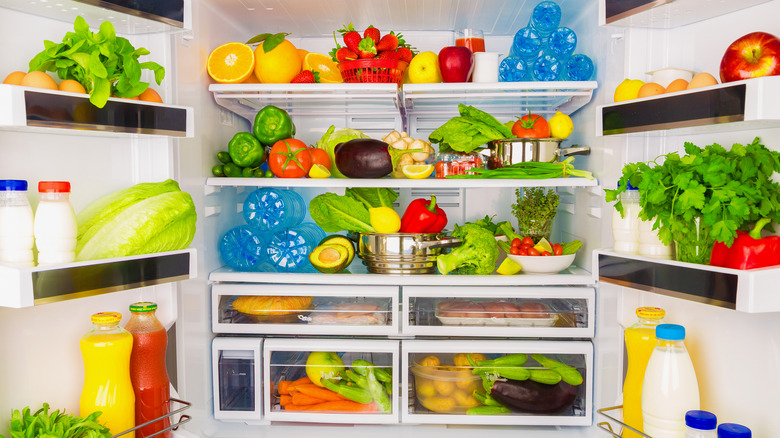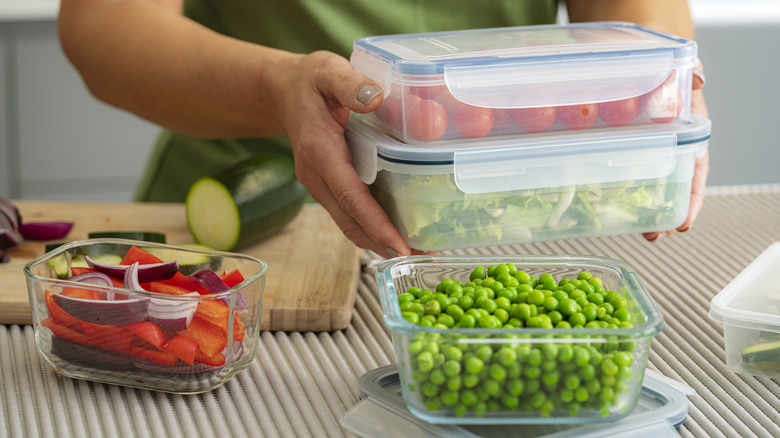This Food Storage Mistake Is Easy To Make In A Pinch
There are plenty of reasons why storing food is always a good idea. It lets you save takeout for round two, stay on top of meal prep, and even use freezer storage to significantly extend the shelf life of bread and fresh produce that usually perishes quickly. But how you store your food is super important, and doing it incorrectly can lead to a variety of problems. One of the main culprits behind spoiled food is leaving it uncovered. To find out why spoilage occurs and how to prevent it, Food Republic consulted Edmund McCormick, specialist in food science, entrepreneur, and founder of Cape Crystal Brands.
According to McCormick, "Properly covering food isn't about tidiness; it's about stopping oxidation, moisture loss and cross-contamination before they've had a chance to start." Oxidation occurs when oxygen particles interact with the surface of foods. Over time, this process causes the food to deteriorate and ultimately leads to rancidity, affecting both the taste and the texture of your food. This is why steak can start to smell fishy, butters develop a foul odor, and fresh fruit eventually turns brown.
To store your food properly and slow oxidation, it's worth investing in airtight contains which will limit your food's exposure to oxygen. Food storage containers are super easy to find at local supermarkets like Walmart, and if you don't have any on hand, plastic wrap or foil will work just as well — just make sure that there's a barrier between your food and the open air!
You should always cover your food
Beyond oxidation affecting its quality, there are several more reasons you should always keep your refrigerated food covered. Another important reason is temperature control. "Refrigerators circulate cold, dry air at all times, pulling the moisture out of any exposed food and quickly causing them to become dehydrated, lose texture and flavor," Edward McCormick told us. While this constant airflow is essential for maintaining an even temperature and slowing bacterial growth, it also creates an ultra-low-humidity environment. Covering your food forms a protective barrier, preventing moisture from evaporating and keeping food fresh.
Keeping food covered is also an essential part of food safety. "The surface of the food itself can become a gateway to cross-contamination," McCormick explained, "as bacteria in the air or from drips off raw ingredients (especially meats and produce) can land right on exposed food." It's also a Food & Drug Administration recommendation that all refrigerated food be covered to reduce the risk of cross contamination. Leaving it uncovered significantly increases the risk of health-related issues such as food poisoning and allergic reactions.
Another reason to cover food is that "most refrigerators are kept at between 35 and 40°F (1.6 to 4.4°C) — a temperature low enough to slow the growth of microbes, but not cold enough to kill them off altogether," McCormick told us. "When left exposed, a micro-condensation cycle occurs each time the door is opened and shuts." Warm, moist air from the outside meets the cold surface of the food. The result, McCormick warned, is "small pockets of moisture that promote spoilage organisms and molds."


